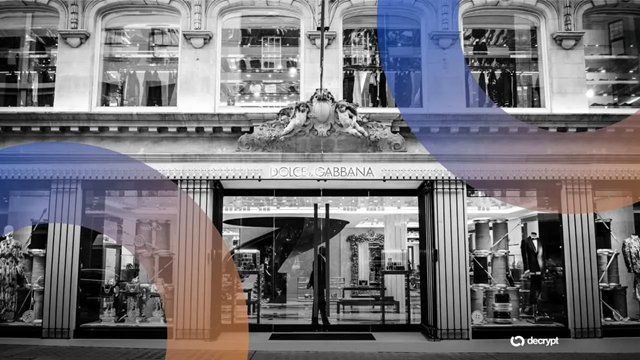Judge Dismisses NFT Lawsuit Against Dolce & Gabbana USA: Insufficient Evidence of Liability

A US federal judge has dismissed a class action lawsuit against Dolce & Gabbana USA, over its NFT project DGFamily, which allegedly broke promises to thousands of investors. The decision comes as the NFT market continues to undergo a sharp correction, with many projects facing allegations of fraud or abandonment of investors.
District Judge Naomi Reice Buchwald concluded that Dolce & Gabbana USA was not liable for the alleged actions of its Italian parent company, Dolce & Gabbana SRL. The court found no evidence that the US subsidiary operated as an “alter ego” or had significant control over the NFT project DGFamily. The judge said that overlapping legal entities, such as sharing executives or office space, were “not unusual” and did not provide a sufficient legal basis to demonstrate the complete control required in such cross-border lawsuits.
The lawsuit was originally filed in May 2024 and later amended in September of that year. Plaintiff Luke Brown, a Culver City resident, alleged that he lost $5,800 investing in NFTs with the promise of digital rewards, premium physical goods, and access to exclusive events. However, he said the project was abandoned after raising more than $25 million from global buyers through eight highly publicized NFT offerings.
The DGFamily project sold a total of 5,000 NFTs, priced between 1,224 and 40 ETH – equivalent to $3,600 to $120,000 at launch. The plaintiffs said they did not receive the promised benefits, while many digital features such as clothing used on the Decentraland platform were delayed or unavailable due to technical errors and the lack of a pre-existing platform partnership agreement.
The court rejected the plaintiffs’ argument that the two companies – Dolce & Gabbana USA and Dolce & Gabbana SRL – were “substantially one.” Judge Buchwald emphasized that attributing liability to a separate legal entity requires concrete evidence, not just vague naming or shared branding.
The ruling also dismissed the plaintiffs’ attempt to amend the complaint further. The judge said the plaintiff was given the opportunity to remedy the deficiencies in the complaint after the defendants had made clear their legal objections in previous documents. In her legal analysis, she noted that the plaintiffs had failed to provide specific facts and had merely “reiterated” legal elements, which were insufficient to pass the federal standard.
The outcome poses a major challenge for NFT buyers in the case, as D&G USA—the sole lead defendant in the United States—has been discharged, while foreign defendants, including the parent company in Italy, have not yet been served with a summons under international law.
The ruling is the latest example of how difficult it is to pursue cases involving cross-border NFT projects. Complex legal issues, from multinational corporate structures to vague regulations surrounding digital products, make it difficult to determine liability and prosecute participants. As the NFT market cools off sharply after its 2021-2022 peak, many individual investors are facing significant losses with no clear path to restitution.
The case also reflects a common reality in the NFT industry: when projects fail or fail to deliver on their promises, individual investors are often left helpless without clear evidence of fraud or specific liability between the parties involved.
While the ruling is a clear defeat for the plaintiffs, the DGFamily case is not yet closed. The remaining defendants in Europe have not formally joined the case, and may be the subject of further legal action if the plaintiffs can overcome the barriers of jurisdiction and international service.
Meanwhile, the case is a wake-up call for investors in digital assets: brand equity does not always translate into real responsibility. Due diligence before investing in NFT projects, especially those involving major brands operating globally, is imperative in today’s legally fraught market.
